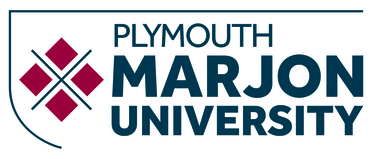A Learning-Scape for Reflective Practice and Professional Identity Formation
Trelfa, Jo (2014) A Learning-Scape for Reflective Practice and Professional Identity Formation. In: Proceedings of the 2nd International Higher Education Teaching and Learning Conference: Innovative learning-Scapes , eScapes, Playscapes and More. Higher Education Teaching and Learning, New York, p. 100. ISBN 9781783502547
Full text not available from this repository. (Request a copy)Abstract
Given reflective practice is posited as the “bedrock of professional identity” (Finlay 2008:2), it is embraced as “a professional imperative” (McKay 2009:70) in UK higher education (HE) programmes as well as in professional practice itself. Since professional identity formation is an evolving process “ideally grounded by structured experiences, personal reflections, and guided feedback” (Furze et al 2011:412), reflective practice is “an enormously powerful tool” (Finlay 2008:10), and much in vogue. However, research with students and qualified practitioners revealed vital issues at the heart of ‘doing’ and ‘using’ reflective practice. Constructivist HE discourses impacting on reflective practice stifle liberalising engagement and thus developing professional identities (Trelfa & Telfer 2013). A growing literature base endeavours to address this through refinement and improvement of reflection-on-action. However, this ‘only considers a small part of professional activity’ (Bronfman 2005:13). Reflection-in-action (Schön 1983) remains “the real challenge” (Bronfman 2005:16), neglected due to being “something of a tease” (Sweet 2006:187), a rather delightful hint at a complex learning-scape. This paper explores ways to consider this complex learning-scape by drawing on my current research. Focussing on students reflection-in-action whilst engaged in professional practice, I discuss role and responsibility (Shapiro 2010), context (Coulter 2001; Biesta 2007) and the dominance given to cognitive processes; highlight a dichotomy between facets they draw on in their creation of a professional act compared with those emphasized in literature and dominant discourse; and suggest a learning-scape that more appropriately engenders means and ends, influenced by sensory ethnography (Pink 2009), and experimenting with new technologies.
| Item Type: | Book Section |
|---|---|
| Divisions: | ?? UniversityCollegePlymouthMarkJohn ?? |
| Depositing User: | Users 134 not found. |
| Date Deposited: | 21 Feb 2017 15:50 |
| Last Modified: | 27 Jan 2020 15:25 |
| URI: | https://marjon.repository.guildhe.ac.uk/id/eprint/15371 |
Actions (login required)
 |
Edit Item |

